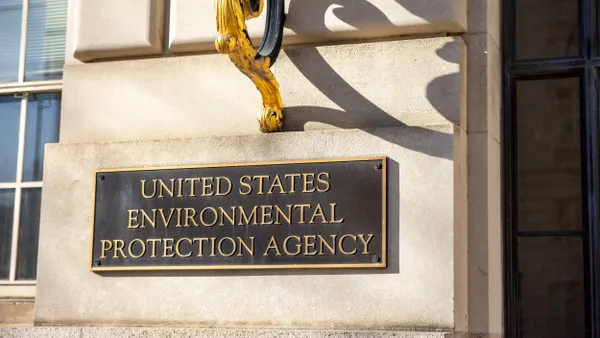Dive Brief:
- New York Mayor Bill de Blasio announced a $32 million plan this week to reduce the rat population in three of the city's "most infested areas" and make other policy changes that could have citywide effects. New York's Department of Sanitation (DSNY) is set to play a leading role in this multi-agency project that will focus on neighborhoods in Manhattan, Brooklyn and the Bronx.
- According to DSNY, the city will spend close to $3.4 million to replace existing wire baskets in affected areas. This will include 336 Bigbelly solar compactor cans (with a five-year maintenance and service contract) and 1,676 steel cans. Collection frequency for these DSNY bans and parks department bins will increase. As part of broader efforts at public housing developments in these areas, DSNY will also conduct a three-month "enforcement blitz" on illegal dumping.
- Citywide changes could also be in store if multiple laws proposed by the de Blasio administration are passed by New York's City Council. One law would increase illegal dumping fines for businesses from $1,500 to $5,000 for first offenses and eventually up to $20,000 for subsequent violations. Other laws could also prevent buildings with 10 or more units from placing their waste out before 4 a.m. on collection days — essentially giving them a two-hour window to do so — and require problematic buildings or businesses in specific areas to divert their organic waste for separate collection.
Dive Insight:
The de Blasio administration estimates that these policies, among many others, could reduce the rat population by up to 70% in target neighborhoods and has already begun implementing some of them. This builds on reportedly successful efforts by the city's health department in recent years to eliminate "rat reservoir" areas by targeting habitats and reducing food sources.
It's long been recognized that New York's lack of a standardized collection system, through carts or other methods, plays a role in its reputation as a rat Mecca. Random cans with loose lids and mounds of plastic trash bags provide easy access to rats in search of a meal. Research by the city's health department has found neighborhoods with curbside organics collection can sometimes have less rat activity because the bins are sealed. While some large commercial generators are currently required to divert their organics for separate collection, many smaller establishments still don't do it — DSNY is working to convince them otherwise. If this law passes, businesses in rat-prone neighborhoods may no longer have a choice.
Other cities such as Baltimore and Washington, D.C. have also been taking steps to reduce their rat populations, though in most cases that has involved new street cans or illegal dumping initiatives. New York's stricter approach of limiting set-out windows and mandating organics collection could potentially be more effective, but based on past reaction to city waste policies it's also likely to be more controversial.











